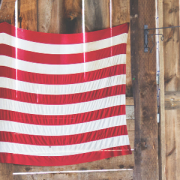China Closes Borders to Foreign Travelers
Ministry of Foreign Affairs of the People’s Republic of China National Immigration Administration Announcement on the Temporary Suspension of Entry by Foreign Nationals Holding Valid Chinese Visas or Residence Permits
March 26, 2020
In view of the rapid spread of COVID-19 across the world, China has decided to temporarily suspend the entry into China by foreign nationals holding visas or residence permits still valid to the time of this announcement, effective from 0 a.m., 28 march 2020. Entry by foreign nationals with APEC Business Travel Cards will be suspended as well. Policies including port visas, 24/72/144-hour visa-free transit policy, Hainan 30-day visa-free policy, 15-day visa-free policy specified for foreign cruise-group-tour through Shanghai Port, Guangdong 144-hour visa-free policy specified for foreign tour groups from Hong Kong or Macao SAR, and Guangxi 15-day visa-free policy specified for foreign tour groups of ASEAN countries will also be temporarily suspended. Entry with diplomatic, service, courtesy or C visas will not be affected. Foreign nationals coming to China for necessary economic, trade, scientific or technological activities or out of emergency humanitarian needs may apply for visas at Chinese embassies or consulates. Entry by foreign nationals with visas issued after this announcement will not be affected.
The suspension is a temporary measure that China is compelled to take in light of the outbreak situation and the practices of other countries. China will stay in close touch with all sides and properly handle personnel exchanges with the rest of the world under the special circumstances. The above-mentioned measures will be calibrated in light of the evolving situation and announced accordingly.
Ministry of Foreign Affairs of the People’s Republic of China
National Immigration Administration




